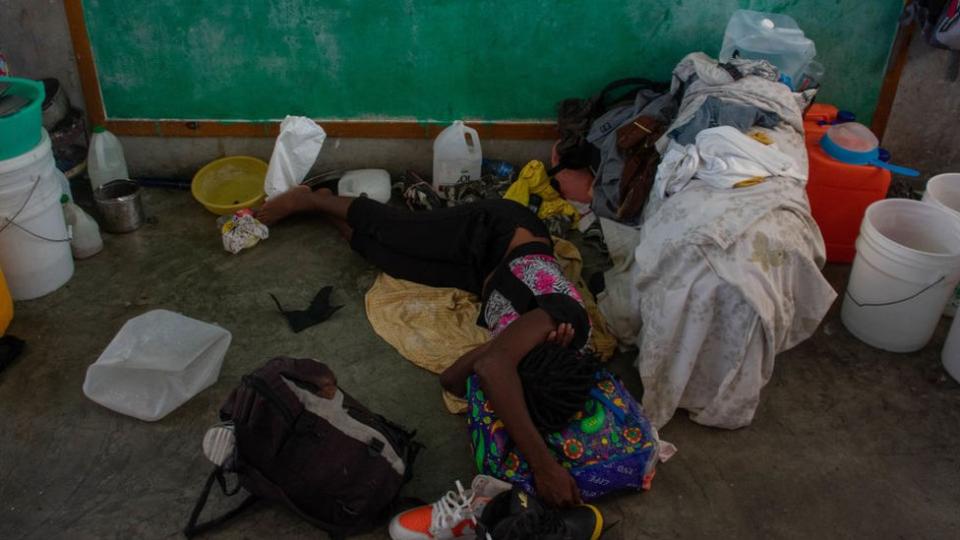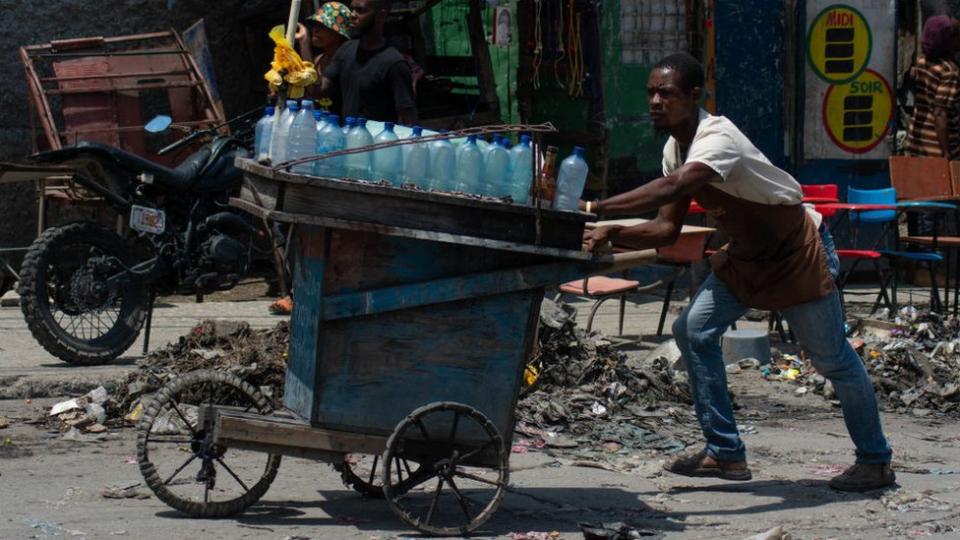Haiti PM Ariel Henry resigns as transitional council is sworn in
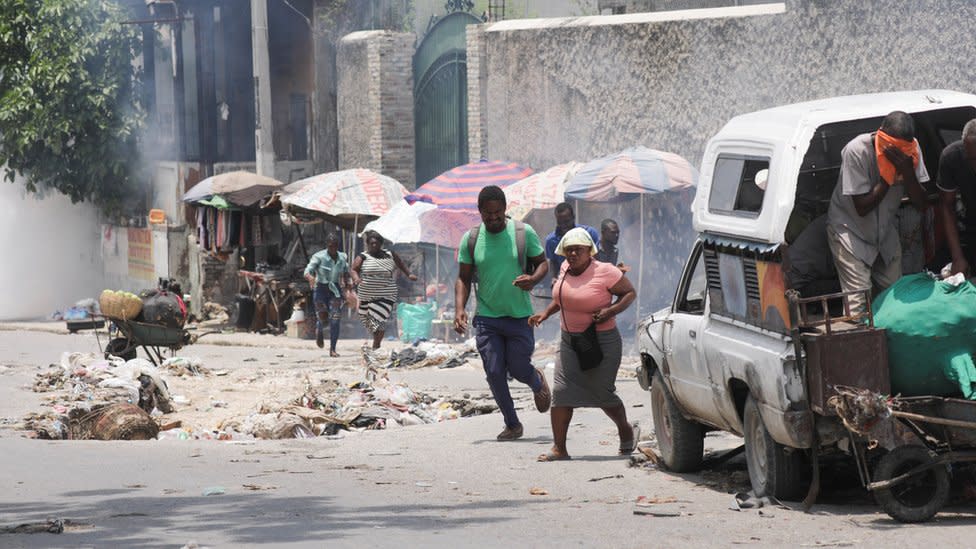
- Oops!Something went wrong.Please try again later.
Haiti's Prime Minister Ariel Henry resigned on Thursday as a new council was sworn in to lead the country gripped by deadly gang violence.
A recent outbreak of violence forced officials to move the ceremony from the National Palace to the outgoing prime minister's office.
Mr Henry agreed to step down last month after armed groups blocked his return to the country.
Gangs now control most of the capital, Port-au-Prince.
They have capitalised on the power vacuum left by the prime minister's exit and expanded their control over swathes of the country, which has effectively become lawless in places.
Mr Henry said he would resign after being prevented from returning from Kenya, where he had signed a deal to import a multinational security force in a bid to restore law and order. His resignation was formally presented in a letter signed in Los Angeles, dated 24 April.
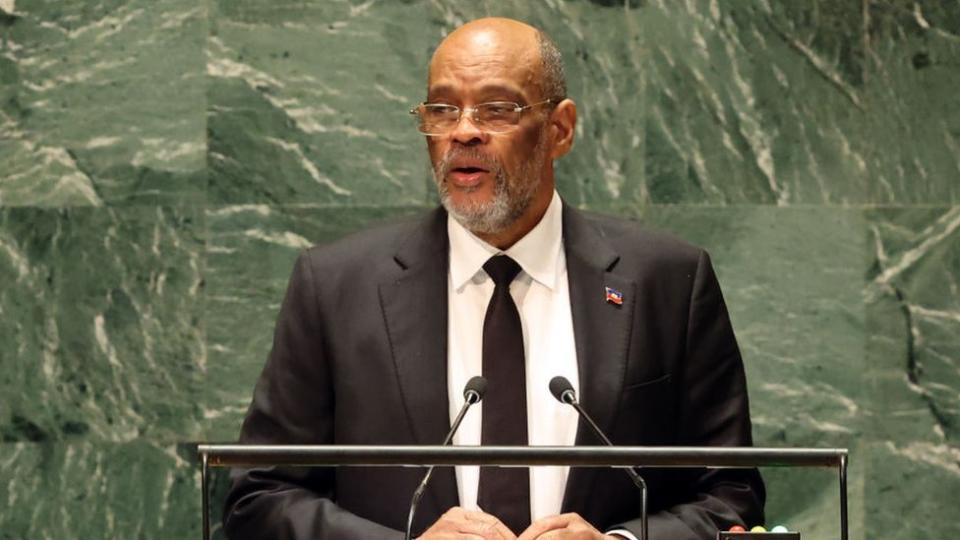
Nine members of the transitional council have now been sworn in, seven of which have voting powers. Mr Henry's finance minister, Michel Patrick Boisvert, will serve as the interim prime minister.
Mr Boisvert said the country was at a "crossroads" in its search for solutions to overcome the political crisis, which was harming the population, property and infrastructure.
The council will try to restore order and democratic rule in Haiti, and is backed by other Caribbean nations and the US.
It will set the agenda of a new Cabinet, form a national security council and appoint an electoral commission to pave the way to a vote.
Its non-renewable mandate will expire on 7 February 2026, when a new president is expected to be sworn in.
The White House welcomed the swearing in of the council, calling it a "critical step towards free and fair elections".
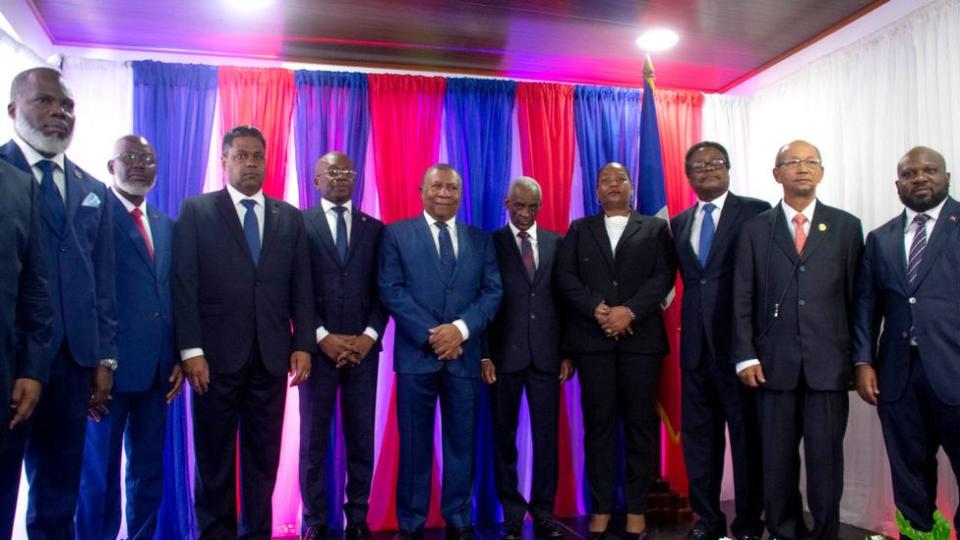
Thursday's ceremony itself was caught up in the gang violence sweeping the country.
Gunfire heard near the National Palace, where it was meant to take place, forced a change of venue to the prime minister's office, known as Villa d'Accueil.
Gangs who had previously attacked the palace promised to derail the ceremony. On Wednesday, police used tear gas to disperse crowds on nearby streets.
One of Haiti's most powerful gang leaders, Jimmy Chérizier, issued a threat in a social media video: "Whether or not you're installed, this message is for you: Brace yourselves."
Mr Chérizier, also known as Barbecue, is the most prominent figure in a loose alliance of gangs known as Viv Ansanm (Live Together), which controls around 80% of Port-au-Prince.
Last month, he said he would consider laying down weapons if armed groups were allowed to take part in talks to establish the new government.
He said he was "not proud" of the spiralling violence in Haiti, and warned the crisis could continue if groups like his - which rail against "corrupt politicians" - are not part of a future government.
The situation in Haiti was described as "cataclysmic" by the United Nations in a report published last month.
It said more than 1,500 people had been killed and 800 injured in the first three months of 2024.
The report detailed the "harrowing practices" of the gangs, which are accused of using extreme violence and sexual abuse as a means of punishment and control.
Aid groups have reported difficulties in getting food and water into the capital, warning that millions are unable to find sustenance - with some on the verge of famine.
Haiti: The basics
The Caribbean country shares a border with the Dominican Republic and has an estimated population of 11.5 million
It has a land area of 27,800 sq km, which is slightly smaller than Belgium and about the same size as the US state of Maryland
Chronic instability, dictatorships and natural disasters in recent decades have left Haiti the poorest nation in the Americas
An earthquake in 2010 killed more than 200,000 people and caused extensive damage to infrastructure and the economy
A UN peacekeeping force was put in place in 2004 to help stabilise the country and only withdrew in 2017
In July 2021, President Jovenel Moïse was assassinated by unidentified gunmen in Port-au-Prince. Amid political stalemate, the country continues to be wracked by unrest and gang violence
